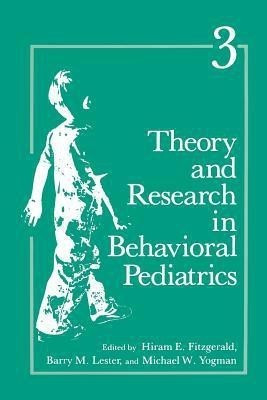Theory and Research in Behavioral Pediatrics(English, Paperback, unknown)
Quick Overview
Product Price Comparison
Volume 1 of Theory and Research in Belwvioral Pediatrics drew attention to issues related to the assessment of the preterm infant, to organizational processes in infant development, and to the systemic nature of caregiver-infant relationships. Vol- ume 2 continued the theme of systemic organization while ex- amining various contextual and ecological factors that affect development during infancy and childhood. Volume 3 con- tinues these themes. Interdisciplinary and cross-disciplinary studies, cross-cul- tural comparisons, prospective longitudinal designs, and so- phisticated multivariate correlational models have encouraged developmentalists to formulate new conceptualizations of the dynamic relationships among those organismic, transactional, and ecological variables that regulate organizational processes. As a result, many traditional models of development have been discarded or, at minimum, have been markedly transformed. Similarly, many time-honored "facts" of development have been seriously challenged both theoretically and empirically. In Chapter 1, Philip R. Zelazo challenges traditional ap- proaches to infant developmental assessment.Zelazo goes a step beyond noting the poor predictive validity of infant devel- opmental examinations, by arguing that such examinations bias the evaluation of infants with handicapping conditions. The emphasis in standard developmental examinations on motor performance, receptive language, and behavioral compliance Vll Vlll PREFACE works against infants whose handicapping conditions involve neuromotor, attentional, or auditory dysfunctions. Zelazo's pro- posed alternative is to directly assess mental activity using cog- nitive-behavioral measures of mental competence derived from central processing models of schema formation.


